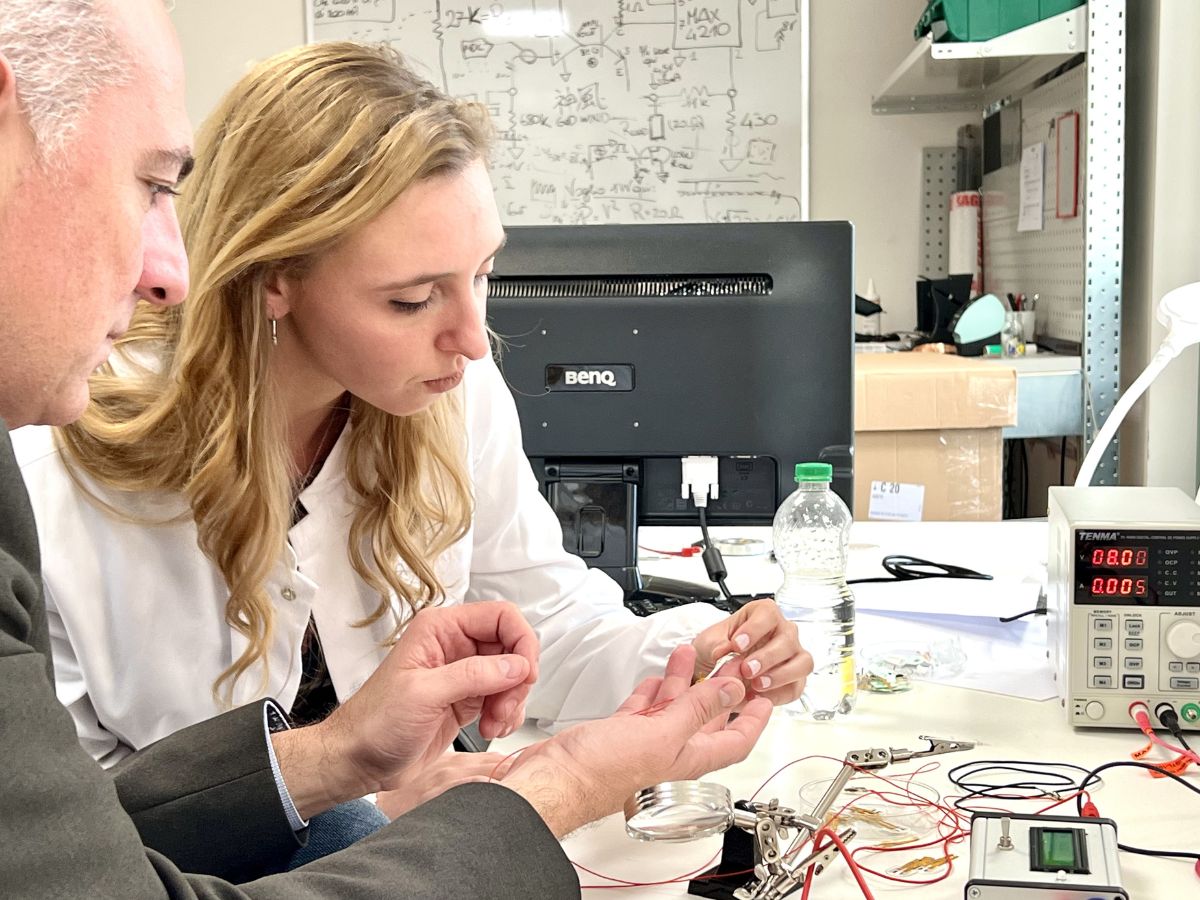The prototype has been realized at Istituto Italiano di Tecnologia and described in Advanced Electronic Materials
An ultra-thin wearable device capable of reproducing the localized sensation of touch: it is the new system developed at the Centre for Materials Interfaces of the Istituto Italiano di Tecnologia (Italian Institute of Technology, IIT), in Pontedera, Italy, and described in a recent paper published in the prestigious journal Advanced Electronic Materials.
Touch is a fundamental sense, and touching the surrounding environment and perceiving tactile sensations from external stimuli is an almost fully automatic skill, fundamental to perform several daily tasks. Therefore, replicating tactile sensations in artificial wearable devices could find multiple important uses, such as reproducing sensory feedback in amputees using a robotic limb, controlling teleoperated robots with a higher precision, providing information to blind people through so-called ‘Braille displays’, or as interfaces in virtual environments and gaming, enhancing the immersive experience of users.
The new system, developed by two IIT researchers, Arianna Mazzotta and Virgilio Mattoli, is an electronic tattoo few micrometers thick and designed to arouse a tactile sensation, thus to generate a force that pushes on the skin of the person who is wearing it, which can then perceive a touch.
The research team has demonstrated the functioning of a single ‘tactile’ dot, and they are working on the implementation of displays that will include several tactile pixels, called taxels, which can be activated independently one from each other, and which will allow to reproduce on the skin letters, numbers, as well as directional and dynamic patterns.
The electronic temporary tattoo – like those used by children – is small and easy to wear, allowing to apply it in everyday life, and it is able to generate a very localised force, capable of restoring a tactile sensation on the skin to which the device adheres perfectly.
The tactile device is based on an electro-thermo-pneumatic actuation strategy, which consists of electrically heating, in a fast and very localised manner, a small volume of air enclosed between two very thin films. As it expands, the air generates forces and displacements on the skin placed in contact, producing the tactile sensation. Due to its very low thickness, the tattoo is virtually undetectable once transferred onto the skin, which is crucial for its potential final application as a tactile display.
Moreover, unlike most of other devices designed and proposed so far to generate tactile sensations through forces and deformations, this system is also able to operate powered by a small battery, at low voltages, ensuring complete safety for the person who is wearing it.
Preliminary usage test results showed great promise in terms of functionality, suggesting the use of this technology as a possible new standard in the manufacture of lightweight, portable, and energy-efficient tactile displays.
The research describing the innovative electronic tattoo was published as part of a Special Issue dedicated to ultra-thin electronics in the journal Advanced Electronic Materials, earning its front cover, and is available at this link: https://onlinelibrary.wiley.com/doi/10.1002/aelm.202201327






